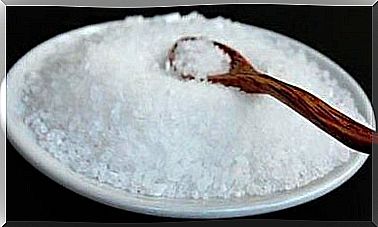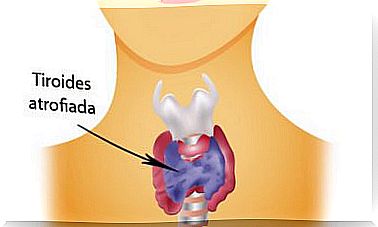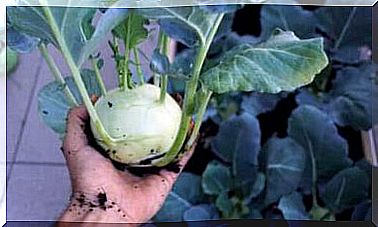8 Types Of Mother: Which One Are You?

According to experts, there are several types of mother. These categories are created to determine behaviors and promote corrective actions. But for those who play the role of mother, in addition to satisfying a curiosity, it’s a way to analyze your actions and ensure you’re on the right path to raising your children.
If you’ve made it to this article, you ‘re probably looking for information about how you’re doing your role as a mother and want to know if you’re doing well. You’ll likely find yourself portrayed in some of these categories and even more than one.
types of mother
When motherhood enters our lives, it puts us to the test in many ways. Of course, we all want the best for our children, even though we often make mistakes and don’t get the well-being we need for our children and for ourselves.

Humans are complex. So, before you “rank” yourself, reflect and analyze what you really need to change for your family’s well-being and happiness. You and your kids deserve the effort!
1. Authoritarian mother
The authoritarian mother is the only one who is able to establish clear rules, rationalize in a loving and respectful way , and hopes that the consequences of violating these rules will be those that strengthen the children’s learning.
The authoritarian mother does not impose an order, although she is firm in what she asks of her child, without ceasing to be affectionate and loving. She doesn’t use fear and punishment, but reasons with the child, listens to their point of view even though she doesn’t agree. It is characterized by having the following attitudes:
- Help your kids to be independent.
- Teach children to learn to take care of themselves.
- It encourages reflection on the negative consequences of actions and the learning that should come from that reflection.
- Explain to your children what is expected of them based on their age and maturity level.
2. tiger mother
The tiger mother is a very demanding and authoritative mother. It is focused on achieving your children’s perfection through strict discipline. Rules are not discussed. She is convinced that her way of raising is the guarantee to achieve success in her children’s lives.
The term “mother tiger” is a recent occurrence, but it is a widely known parenting style. The tiger mother knows the path for children to become people who value effort and appreciate perseverance at work.
Children of these types of mothers do not have time to play or share leisure time with other children of the same age. The mother’s high expectations only accept an “excellent” in academic performance or in the complementary activities that the child performs.
A tiger mother may have an exceptional child in school or in sports or arts practices. You may wonder if your children are happy, as long as they achieve these results.
3. Fundamentalist mother
She’s the kind of mom worried about doing well, she gets informed about what’s best for her child and what’s the best way to take care of him, but she forgets about common sense.
If raising children were so difficult, the human species would probably have been extinct millions of years ago, when there were no specialists in child psychology or pedagogy, or the internet to massify so much information.
The fundamentalist mother does not usually stop to listen to what her heart says, her own reasoning or her instincts. She follows what the expert says to the letter and blindly trusts the theory.

This kind of mother is full of good intentions but finds it difficult to find a balance. She is an extremist who keeps wondering if what the expert proposes is what works best for her and her son’s particularities.
4. Overprotective mother
Of course, no mother wants her child to go through an unpleasant situation, so somehow we were all overprotective at one time or another. The problem arises when the overprotective mother is so concerned about the child that it prevents him from developing.
It is the mother who, for example, has these behaviors:
- Don’t let the baby crawl because the floor has germs or won’t let anyone touch the baby.
- She enters into the arguments her child has with another child, without letting him resolve his differences on his own.
- Answer for your child when another adult asks you something.
- Accompany the child in tasks he is already trained for, such as eating, dressing or going to the bathroom.
- You feel guilty about anything that can happen or negatively affect your child.
5. Helicopter Mother
If you hang on to everything your kids do, take them to the games, obsess about solving all the problems your kids face, or try to keep them from getting into trouble, you’re probably a helicopter mom.
This kind of mother is between the overprotective and the fundamentalist. A helicopter mother flies over the lives of her children. She is so concerned about her children’s health and well-being, their successes and failures, that she doesn’t let children live their lives and prevents them from developing their capabilities.
You could say that the helicopter mother is nosy and controlling. From doing homework for your kids when they’re of school age to accompanying them everywhere when they’re old enough to go and do things on their own.
6. Complacent mother
Among the types of mother, there is one who is permissive and submissive. She is called a compliant mother. A mother is so preoccupied with being friends with her children that she forgets to play her role as a mother. You don’t set standards for fear that your children will suffer or be frustrated. She is certainly the daughter of an authoritarian mother.
The mother, as a child, learned to obey the mother’s orders and became an insecure person.
She gives in to what her son asks, who gradually becomes more demanding, until he becomes a tyrant.
The complacent motherfucker knows no limits, does not know how to wait, mistreats and is self-centered, because he receives everything from a complacent mother, who is willing to give everything without requiring any effort or responsibility from the child.
7. Absent mother
There are different types of mothers who delegate the education and upbringing of their children to others. These are the absent mothers.
The reasons for his absence are diverse, and while they try to fill the emotional void left by his absence, the truth is that they are not available when a compliment or reprimand is needed.

Although it’s a term generally applied to men, absentee mothers are becoming increasingly common.
From those who have very demanding work schedules to support the home, to those who are physically present but not involved in the education of the children.
She can be a woman for whom her schedule, career, and lifestyle come before her children’s needs. Because they don’t provide enough emotional support, their children are unable to develop empathy and compassion.
8. Toxic mother
She is, without a doubt, the most negative type of mother for the integral development of children. It is the mother who causes the children suffering because they are victims of their manipulation, demands or abuse.
The toxic mother will raise insecure and submissive children with low self-esteem. She is a selfish, narcissistic woman who doesn’t value or minimize the children’s efforts and achievements because she wants all the attention for herself.
Instead of sowing love, respect, and independence, the toxic mother sows fear, guilt, and obligations that don’t belong to her children. Nothing the child does satisfies her.
final reflection
As we said: probably all mothers have a little of each of these types of mothers. The perfect mother doesn’t exist. The necessary reflection is to fix the levels of “toxicity” that we have within us.









